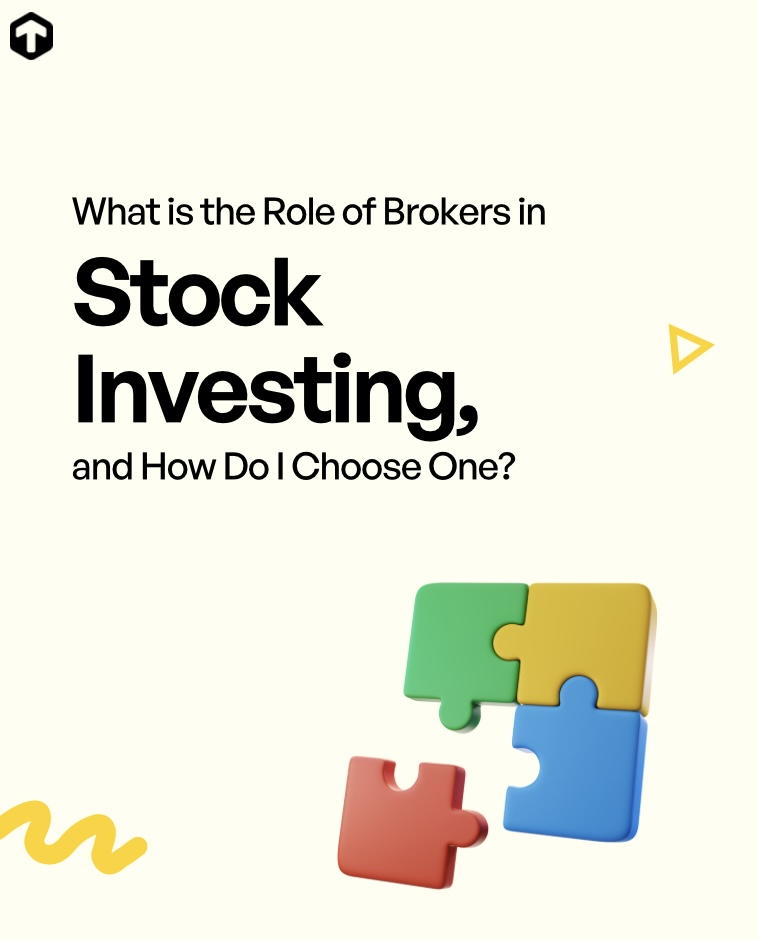You’ve probably heard the word “broker” tossed around and wondered, “Do I really need one, or can I figure this out on my own?” It’s a fair question, and the good news is, that understanding brokers isn’t rocket science.
Think of them as your personal stock market GPS, guiding you through the tricky paths so you avoid costly wrong turns. In this blog, I will explain the role of brokers in stock investing.
Why You Need a Broker to Start Investing
In Nigeria, the stock market operates through the Nigerian Exchange Group (NGX), where stocks are bought and sold. However, you can’t walk into the NGX and trade on your own—it’s not a supermarket. This is where brokers come in.
A broker acts as your middleman, licensed by the Securities and Exchange Commission (SEC), to help you execute trades, manage investments, and navigate the complexities of the market. Without a broker, investing directly in stocks is practically impossible for most individuals.
The Roles of Stock Brokers
Brokers are not just order-takers; they’re critical to your success in the market. Here’s what they do:
1. Executing Trades
Brokers handle the actual buying and selling of stocks on your behalf. Whether you want to purchase shares in Dangote Cement or sell some stock in Zenith Bank, your broker ensures these transactions happen smoothly and legally.
2. Investment Advice
Some brokers, especially full-service ones, provide valuable advice on what stocks to buy, when to sell, and how to balance your portfolio. They analyze market trends, company performance, and even macroeconomic indicators to guide your decisions.
3. Portfolio Management
If you’re too busy to keep an eye on your investments, brokers can manage your portfolio for you. They’ll adjust your holdings based on your financial goals and risk tolerance.
4. Market Research
Brokers often provide insights, reports, and updates on market trends. For instance, they might highlight promising sectors like telecommunications (e.g., MTN) or energy, giving you a clearer picture of where to invest.
5. Access to Digital Platforms
Modern brokers offer apps and online platforms where you can monitor your investments, execute trades, and access real-time data—all from the comfort of your phone or laptop.
How to Choose the Right Broker
Selecting a broker can feel overwhelming, especially with so many options available. Here’s a checklist to help you narrow it down:
1. Reputation and Regulation
Always ensure your broker is registered with the SEC and has a solid track record. You don’t want to entrust your hard-earned money to a shady operator.
2. Fees and Costs
Brokerage fees can eat into your profits. Ask about trading commissions, account maintenance fees, and any hidden charges. Discount brokers generally have lower fees than full-service brokers.
3. Services Offered
Do you want advice and portfolio management, or are you comfortable making your own investment decisions? Pick a broker whose services align with your needs.
4. Digital Accessibility
Look for brokers offering user-friendly apps or platforms that provide real-time updates, seamless transactions, and analytical tools. In Nigeria, many brokers now integrate fintech solutions for convenience.
5. Investment Options
Ensure the broker provides access to the type of assets you’re interested in—stocks, bonds, mutual funds, or ETFs. A diverse portfolio reduces risk.
6. Security Measures
With online trading platforms on the rise, cybersecurity is crucial. Verify the broker’s data protection policies and the security of their platforms.
Mistakes to Avoid When Choosing a Broker
Before you settle on a broker, keep these common pitfalls in mind:
- Overlooking Hidden Fees: Always ask for a breakdown of costs. Some brokers advertise low fees but charge heavily for withdrawals or additional services.
- Ignoring Regulatory Compliance: If the broker isn’t licensed by the SEC, steer clear.
- Rushing the Decision: Take your time to compare brokers. Read reviews and, if possible, ask for recommendations.

Conclusion
Investing in the stock market is a journey, and choosing the right broker is the foundation of your success. Whether you go for a full-service broker to guide you through every step or a discount broker for more control, the key is to pick one that fits your needs, budget, and investment goals. Don’t let fear hold you back—start small, do your homework, and remember that every seasoned investor was once a beginner.
By planning wisely and working with a reliable broker, you’ll be well on your way to growing your wealth and achieving your financial dreams.




